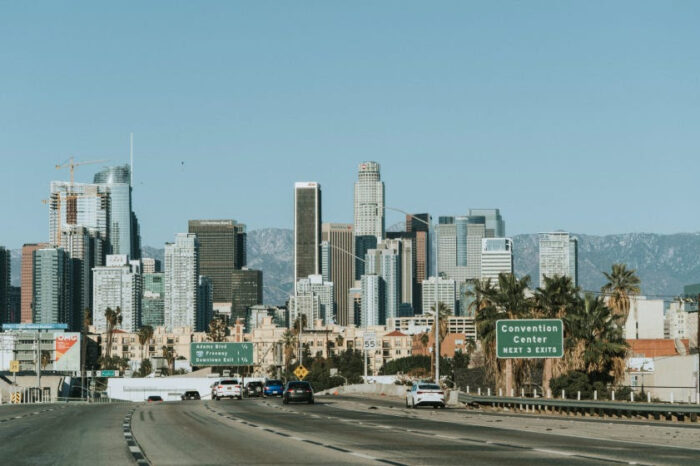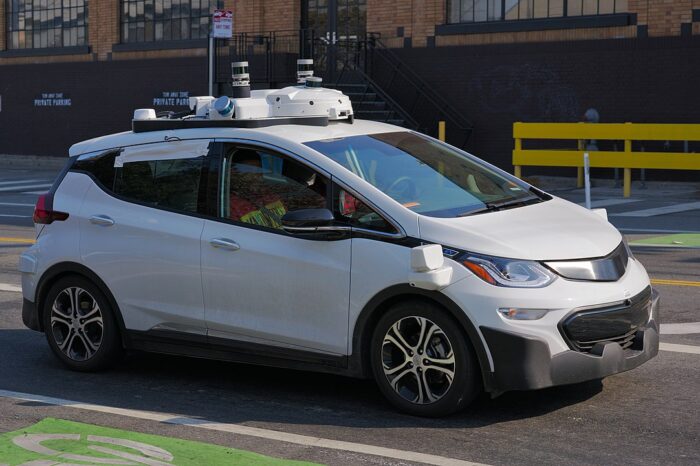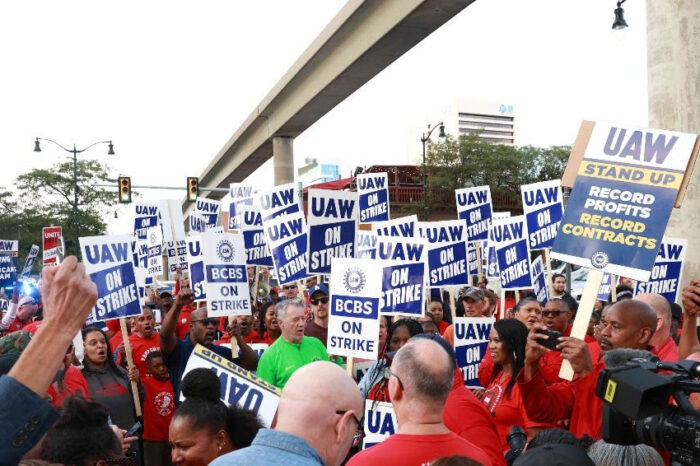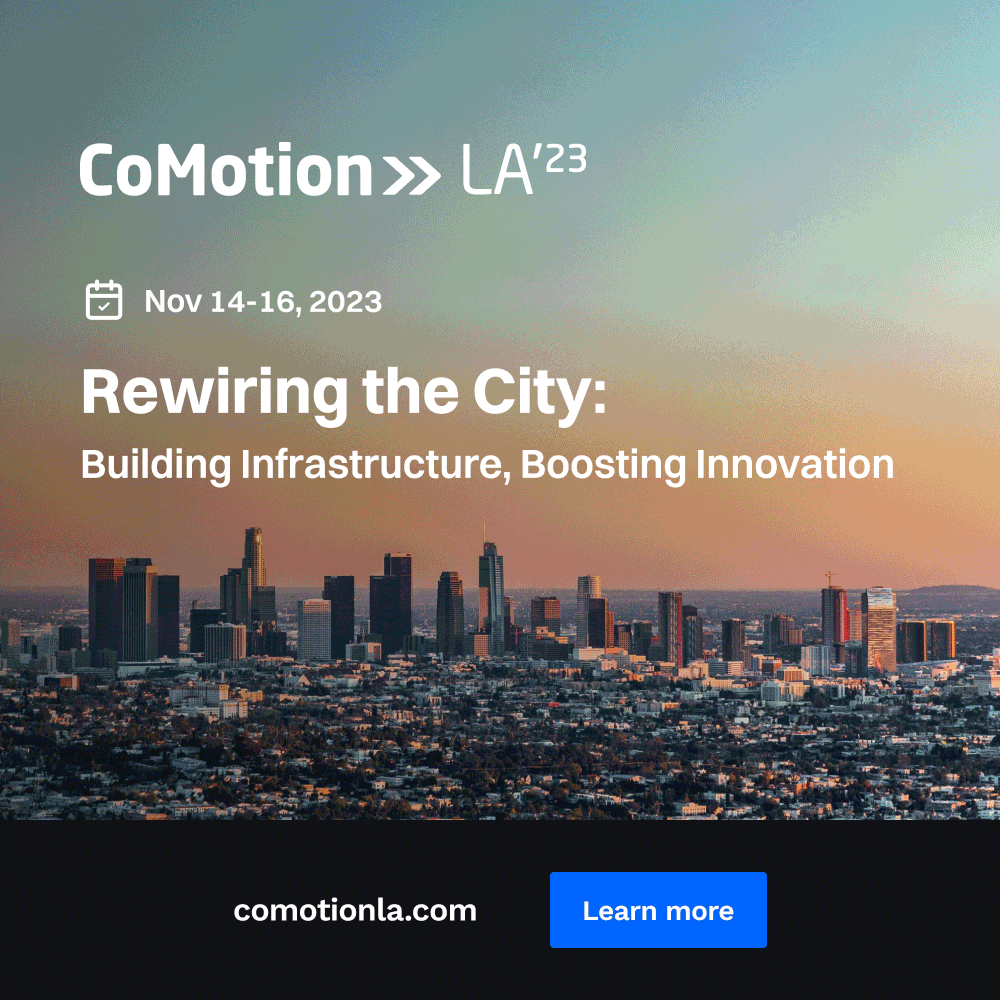A lot of interesting news in the world of urbanism and mobility last week. For starters, a group of tech titans, having perhaps determined the existing municipalities in the Bay Area to be lost causes, have proposed building a whole new urban utopia 60 miles northeast of San Francisco. We’d be interested to, uh, hear more about their mobility strategy. Speaking of –– Paris, which is quite a bit older, finally implemented its ban on scooter-sharing services, becoming the first European capital to take such a hard line.
The Biden administration announces $15 billion to help automakers build EV and battery factories. Cruise prepares expanding robotaxis to Seattle, Mercedes unveils an EV with a longer range than Tesla, Google’s new tool will help you figure out when it’s cheapest to book a flight and an aging Hong Kong reconsiders near-free transit for seniors.
And by the way, what is VinFast and why is it now worth more than Volkswagen and GM?
Don’t miss our upcoming flagship event, CoMotion LA ‘23, Nov 14-16, 2023. Register today and you can save 30% on your Early Bird pass! Discount expires Oct 16.
Use code “LABORDAY10” when you register for CoMotion LA and receive an additional 10% off all in-person passes. Secure your chance to engage directly with top mobility trailblazers from across the U.S. and beyond. Code expires Sept 5 at midnight.
![]()
Billionaires introduce the world to California’s newest city: The group of tech billionaires who have bought up 78 square miles of farmland northeast of San Francisco have gone public with their vision to build a new urban community from scratch. The investment fund, which now calls itself California Forever, has been operating in secret for years, but was exposed a little over a week ago by the New York Times. The group’s website invites existing residents in the surrounding areas to join a “conversation about the future of eastern Solano County.”
The organization appears to envision something of an urbanist paradise: dense, walkable, bikeable, transit-oriented, tons of green space and powered by renewable energy. Of course, not everyone loves the idea of city-as-startup, both inside and outside of Solano County. Said one displeased local rancher: “If they want a new city, San Jose is ripe. Fix what’s there.”
Paris bids adieu to scooters: The prohibition on rental e-scooters goes into effect in Paris, four months after voters overwhelmingly signaled support for such a ban. Scooter supporters continue to bitterly note that only 8% of eligible voters took part in the referendum. Parisians are still allowed to buy and use their own trotinettes, but the likes of Lime and Bird can no longer do business in the city. In a city with an excellent public transit system and an increasingly robust network of bike infrastructure, rental scooters may seem superfluous. But a number of restaurant workers who spoke to the New York Times say e-scooters offered one of the best ways to get home in the early morning hours, when the Metro is closed.
Biden admin announces $15.5B for EV factories: The Department of Energy allocates a big chunk of money from the Inflation Reduction Act to help automakers transition to EV manufacturing. $2 billion in grants and $10 billion in loans for projects to convert traditional assembly plants into EV factories. An additional $3.5 billion is going to support the manufacturing of batteries and battery materials.
Two Chinese unicorns move towards U.S. IPOs: Chinese regulators have approved allowing Zeekr, an EV startup, and WeRide, an autonomous driving startup, to issue shares on the New York Stock Exchange. The approvals come six months after Beijing put in new restrictions requiring companies to meet certain data protection standards in place before selling shares abroad. The new rules have slowed down the number of Chinese companies listing in the U.S.
Battery recycler raises $1B: Redwood Materials, the well-backed battery recycling startup co-founded by former Tesla CTO JB Straubel, has secured over $1 billion in a Series D funding round, pushing its valuation past $5 billion. Redwood, which has plans to build factories in Nevada and South Carolina, aims to extract materials from used batteries, such as lithium, nickel and cobalt, that will allow battery-makers to reduce their reliance on Chinese imports. Finding domestic battery parts is a top priority for automakers in order for their vehicles to qualify for tax credits included in the Inflation Reduction Act.
Cruise eyes expansion in Seattle, D.C.: The GM-backed robotaxi service will begin data collection in Seattle and Washington D.C., with plans to eventually launch driverless ride-hailing. The somewhat rocky beginning to its operations in San Francisco might make officials in those cities wary of embracing unfettered robotaxis just yet. We’ll see…
Pay up, Grandpa: Hong Kong, a city that boasts the world’s longest life expectancy, is being forced to reconsider a 12-year-old policy that offers near-free transit access to anyone over 60. By 2030, a third of the city’s population will qualify for the discount. Either the seniors need to start paying more or the government needs to find new sources of revenue to fund its world-renowned system of public transit.
Mercedes’ claims range title: The luxury German auto brand’s newest EV, the CLA sedan, boasts a range of 750 km (466 miles), well ahead of the Tesla Model 3’s 606 km (366 miles). The vehicle the automaker has unveiled is a “near-production prototype.”
Scheduling to pay less: Google Flights launches a feature aimed at helping travelers pinpoint the optimal moment to book a flight. The tool will draw on trend data to recommend when they’re most likely to score a cheap trip.
![]()
The housing market is stuck: Yahoo Finance examines the many drivers of America’s housing crisis. Even as local governments are taking steps to ease zoning and other regulations that get in the way of new housing, high interest rates have deterred many developers from building.
Ideas for building better cities: CityLab offers a look at some of the best lessons for successful city-building. Among the ideas: appoint a bike mayor, don’t play the ‘stadium game,’ and find cheap ways to convert empty offices into housing.
Wait, what’s VinFast again? A stock market frenzy has made VinFast, an EV manufacturer founded by Vietnam’s richest person, one of the most valuable automakers in the world despite selling only 24,000 vehicles last year. The Financial Times looks at the man behind the company, Pham Nhat Vuong, who has found fortune in everything from real estate to Ukrainian noodles.
Should Hyundai and Kia pay for making their cars so easy to steal? New York Times columnist Farhad Majoo highlights the wave of car thefts in the U.S. targeting certain Hyundai and Kia models due to a manufacturing flaw that makes it very easy to start the cars without the key. Many major cities are reporting that car thefts have more than doubled this year. In many cases the cars are merely stolen by teens who take them on quick joyrides and boasts on TikTok. Much blame has been heaped on TikTok for facilitating the phenomenon, but Farhad suggests more should be asked of the auto manufacturers’ faulty products.
Enjoy the Week in Review? Get it delivered directly to your inbox by signing up for the CoMotion NEWS newsletter.





